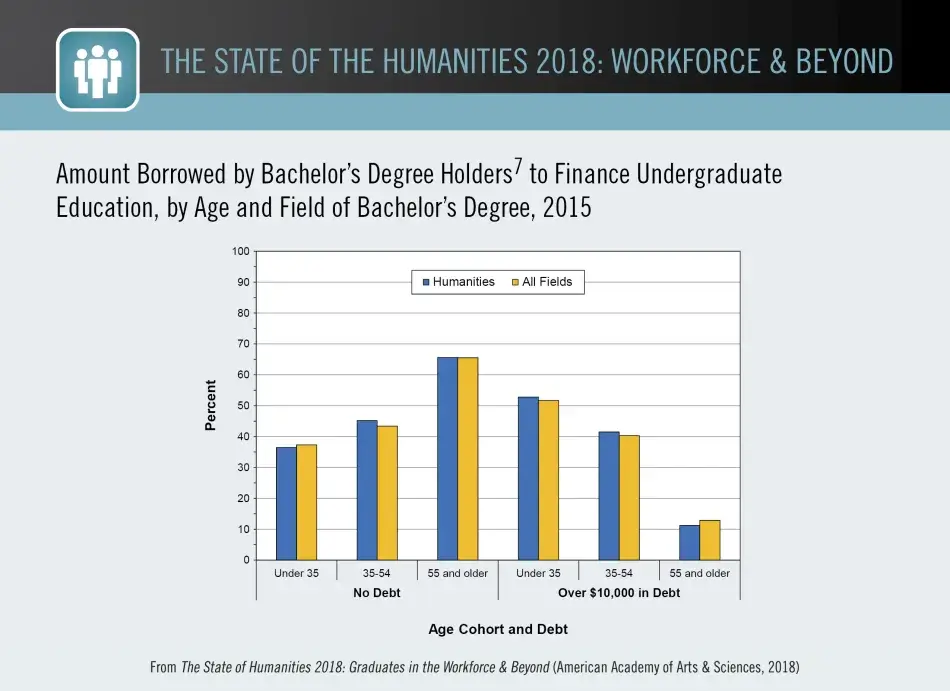Amount Borrowed by Bachelor’s Degree Holders to Finance Undergraduate Education, by Age and Field of Bachelor’s Degree, 2015

Note: In this and subsequent figures, “bachelor’s degree holders” include alumni who have terminal bachelor’s degrees and those who went on to obtain an advanced degree (in the humanities or another field).
Another financial concern raised about humanities degrees, one closely related to the issue of earnings, is the burden of student debt acquired during college study. A comparison of debt levels among college graduates in 2015, however, shows only negligible differences between humanities and non-humanities graduates across all age cohorts. In the humanities, as is true for the larger college graduate population, graduates tend to have either no debt or a considerable amount early in life. Even among those age 55 and older, almost 6% of graduates reported they still carried more than $10,000 in debt from their undergraduate studies (as compared to 66% without debt). Here again, there was no difference between humanities graduates and graduates generally.1